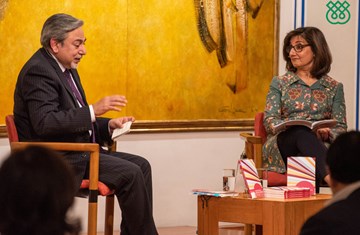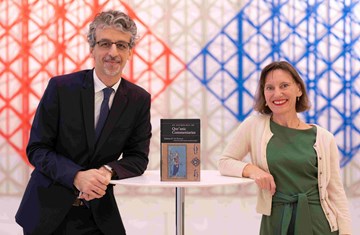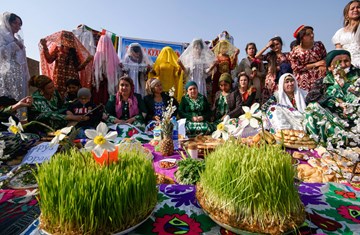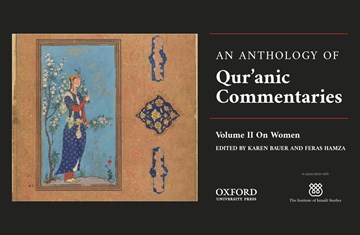IIS Publishes the Ninth Volume in the Qur’anic Studies Series
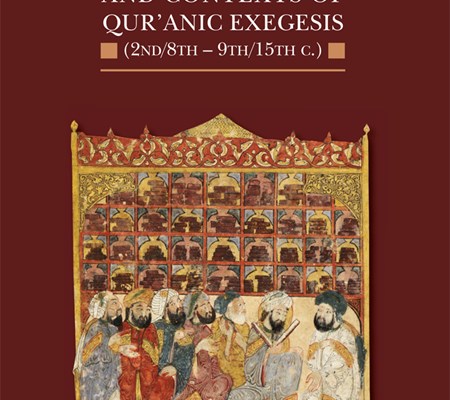
The IIS is pleased to announce the publication of Aims, Methods and Contexts of Qur’anic Exegesis (2nd/8th-9th/15th c.), edited by Dr Karen Bauer, Research Associate in the Qur’anic Studies Unit. Although many books and articles use tafsir as a source, this is the first volume dedicated to exploring tafsir as a genre. The product of two workshops sponsored by the Institute in 2008 and 2009, it is the ninth volume in the Qur’anic Studies series. This volume offers fresh analytical perspectives and addresses new methods for the study of tafsir.
Medieval interpretations of the Qur'an often serve as points of reference for Muslim thought; yet Qur’an commentaries were shaped not only by the Qur’an itself, but also by their authors’ ideological viewpoints, their theories of interpretation, their methods, and the conventions of the genre. This volume focuses on the complex relationship between exegetes’ theoretical aims, their practical methods of writing, and the historical and intellectual contexts of Qur’an commentaries (tafsir). The essays emphasise the ways in which geography, human networks, hermeneutical systems, and genre boundaries affected the writing of these texts.
The volume also includes primary resources in the form of editions and translations of the introductions to al-Basit by Abu’l-Hasan ‘Ali al-Wahidi (d. 468 AH/1076 CE) and to the Tahdhib fi Tafsir al-Qur’an by al-Hakim al-Jishumi (d. 494 AH/1101CE), an edition of the section of Jishumi’s Tahdhib on Q. 68:33–43, and translated selections from the introduction to the tafsir of ‘Abd al-Razzaq al-Kashani (d. 736 AH/1336 CE).



